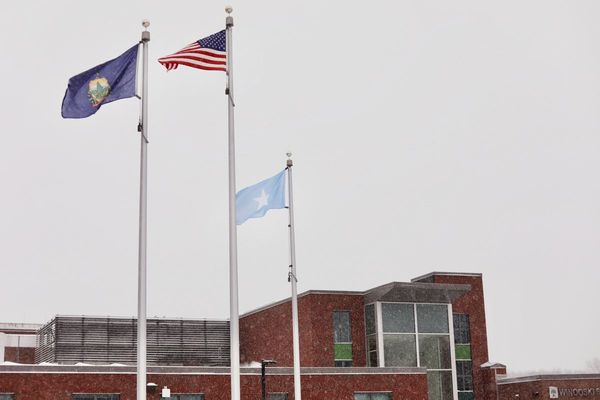
News from around the world
France is putting 18 people, including two veterinarians, on trial over their alleged involvement in Europe’s horsemeat scandal. Defendants are accused of participation in the supply of horsemeat unfit for human consumption across the continent, with those accused coming from France, Germany, Belgium, the Netherlands and Spain.
New Zealand is to introduce a tax on sheep and cattle burps in an attempt to tackle one of the country’s largest sources of greenhouse gases. It would be the first country in the world to charge farmers for the methane emissions from the animals they keep. There were more than 36 million sheep, beef and dairy cattle in New Zealand in 2020.
European agriculture ministers are pushing for acceptance of a vaccination against highly pathogenic avian influenza (HPAI) in poultry. The disease, also known as bird flu, has spread widely across the continent during the past two years, with the EU set to explore the potential of using vaccines to prevent the spread, rather than culling.
Officials under former US president Donald Trump “collaborated” with the meatpacking industry to downplay the threat of Covid to plant workers and block public health measures that could have saved lives, a new investigation has found. Internal documents describe how industry representatives lobbied government officials to stifle “pesky” health departments from imposing evidence-based safety measures.
More than 3,000 cows in New Mexico have been culled after toxic pollution from a nearby US military base was found to have contaminated their water source. The New Mexico Environment Department said it was helping clean up the waste and criticised the Department of Defense for poisoning the local farm’s cows, but failing to take responsibility for the pollution.

Germany has reported a new outbreak of the deadly pig disease African swine fever (ASF) on a farm more than 300 miles (480km) from where other cases have been registered and just four miles from the French border. Due to better biosecurity ASF has so far not been as deadly in Germany or Italy as it was in China, where it devastated the industry.
Leading animal rights organisations in Asia staged protests outside eight McDonald’s restaurants. The coalition of campaign groups called on the company to end its use of eggs produced in small cages across the continent. Meanwhile, McDonald’s shareholders have voted against a proposal to improve the treatment of pregnant pigs.
Researchers in China have reportedly developed a process to clone pigs entirely through the use of robots – a development that may help the world’s largest pork consumer reduce its reliance on imported breeding pigs.
The largest lab-grown meat plant in Asia is to be built in Singapore, opening next year. The country became the first government to allow the sale of lab-grown meat in 2020 and the new factory will be built by the US company Eat Just.
UK news
A third of migrant workers on UK fishing vessels who responded to a survey work 20-hour shifts, and around one-third reported regular physical violence, according to a new study.
A campaign group has urged councils to drop meat from school dinners at least two days a week, despite critics saying activists are “ignoring evidence”. Animal Rebellion claims to have persuaded one English council to agree to its demands, but Jeremy Miles, the education minister for Wales, insisted meat should always be on the menu.
Reducing stocking densities for broilers too quickly could threaten supplies of home-produced chicken, Tesco’s agricultural manager has warned. John Kirkpatrick said a move to increase the space given to chickens could reduce the amount of British poultry produced, it was reported.

The UK’s biggest cheesemaker is set to receive a large fine after it admitted pollution and odour charges. Dairy Crest – which is owned by the Canadian firm Saputo, and makes brands including Cathedral City – admitted 21 pollution incidents, which led to fish dying in the River Inny in Cornwall.
From the Animals Farmed series
Danish mink breeders have turned their backs on the industry en masse after being forced to cull their animals over fears a Covid-19 mutation could pose a risk to humans. In November 2020, Denmark announced it would cull approximately 15 million animals, with the government temporarily banning mink farming and breeding for fur until 2023.
Iceland is under pressure to ban the production of a hormone extracted from pregnant horses, a practice that has been described as cruel and “animal abuse”. Pregnant Mare Serum Gonadotropin (PMSG) is used by farmers in the UK and Europe to increase reproduction in pigs, cows and other female farm animals. Animal welfare campaigners visiting farms discovered broken restraint boxes and enclosures covered in bite marks, which they claimed was a sign of anxious horses.
Consumers could be hit with higher egg prices as UK farmers reduce their flock numbers, in response to escalating costs and insufficient profit margins. The numbers of chicks being placed by egg producers in April was down 15% year on year, according to the latest government figures.
The low price of wool is pushing farmers to opt for moulting sheep, with shearing now costing more than the wool is worth. Farmers are switching to breeds that shed their own fleeces, and wool is seen as an optional extra to the meat that brings in the bulk of their income.
The US poultry industry has increasingly switched to “the most inhumane method available” to cull tens of millions of birds during the latest outbreak of avian influenza, according to government data. Outbreaks of the disease have led to 38 million birds being killed in the US so far this year.
Share your stories and feedback
Thank you to everyone who continues to get in touch to share their thoughts on the series.
In response to our story on the low price of sheep wool, John Brice wrote:
I suggest farmers use sheep for milk. I try to buy sheep cheese in the UK and the only ones available are French or Spanish Manchego. It has a lovely delicate flavour. I would definitely buy British ewes cheese if it were available. This is one easy way out of the wool price crash – although maybe not easy because it requires investment and expertise, which can be acquired or imported.
Please do send us your stories and thoughts to us at: animalsfarmed@theguardian.com. And sign up for this Animals farmed monthly update to get an email roundup of some of the biggest farming and food stories across the world and keep up with our investigations.







